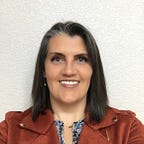It’s Time to Re-assess Your Goals
For the last few days, we’ve been exploring how to identify and set your goals. Today, the focus is going to shift to evaluating your goals not for how effectively they are written or detailed out, but how to ensure that you are continuing to adjust your goals to continue to challenge you. Remember, goals that are outcome-focused (hit a specific weight target or perform a certain task) are less successful than tasks that are process-oriented. Goals that are process-oriented also provide us the opportunity to continue learning and growing versus falling into complacency and stagnating.
When we are setting goals for things we haven’t done before, we lay out the goal based on what we know at that particular moment in time. We know a little of what we need to do — typically those first several actions we need to take — and the overall outcome that we are trying to achieve. The actions to be taken in between are nebulous and ill-defined. We simply don’t know what we don’t know — a stage known as unconscious incompetence.
As we begin to take action against our goal, we begin to uncover aspects of our goal that we don’t understand or know how to do — what’s called conscious incompetence. As we become better at building the knowledge and skills to achieve our goal, we move into conscious competence. In this stage, we can perform the task or skill, but it requires a high degree of focus and sometimes support to achieve. When the task or skill becomes second nature, we move into unconscious competence where we no longer have to think about the task and it becomes “second nature”. After enough time, we can even forget that the task is a core part of the bigger effort that we are trying to achieve.
Using this model, we move from discovery into learning and practice and finally to a level of experience that is no longer challenging to us. If we are moving quickly into unconscious competence, it should be an indication that we didn’t set our goal big enough or set them using an approach that we adopted from someone else.
We also need to watch our goals to ensure that we don’t become complacent with where we are. As human beings, we are relatively change adverse as it gives us a sense of feeling safe and in control. If we want to improve ourselves for the better — and continue doing so — we have to challenge ourselves to move beyond what is known as the comfort zone. This zone is different for everyone and can often be context or situation-based. For our purposes, we are going to look at the comfort zone only in the context of our goal.
Imagine you want to become better as a writer. Your comfort level may be writing only for yourself and never sharing your work. Within the fear zone, you are focused on strategies to protect yourself from the haters whether or not they truly exist. In this zone, you may also impede your growth by making excuses about why you aren’t publishing your writing or engaging in endless research and planning rather than getting down to the hard task of writing. In the learning zone, you are actively engaging yourself in the writing process, asking for feedback, outlining steps you’ll take, and seeking out opportunities to improve your writing technique. In the growth zone, you are living from a place of self-confidence and belief in yourself, acting in alignment with your values and actively setting and achieving new goals.
In both these models, your focus should be to live in your learning and growth zones as much as possible. As you learn new skills or techniques, you should be using them to push yourself to practice the skills learned in order to grow towards your goals and then past them to new goals.
If you’re new here…
We are on a journey to helping you Become the CEO of You so that you can become the best version of yourself. Over the course of the month, we’ll cover knowing yourself, creating goals, adopting mindsets, embracing habits, and practicing self-care. You can find all the posts in our publication Living to Learn. You can also find my random musings on my personal page here.
